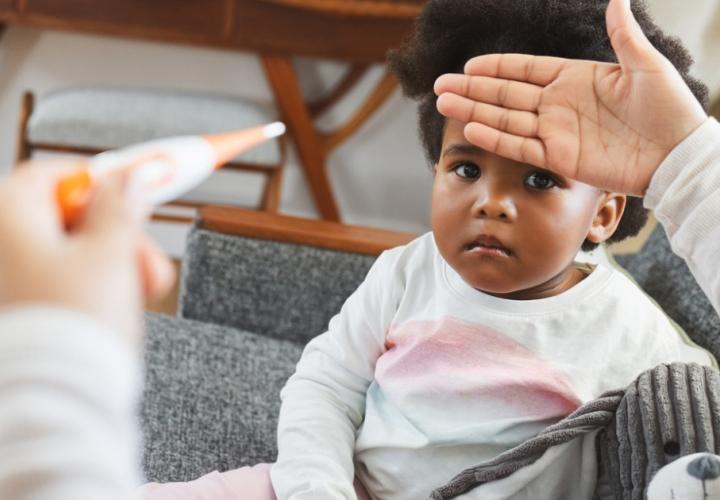If I can’t find children’s acetaminophen or ibuprofen, how can I treat their fever?
First, Connecticut Children’s pediatric experts want you to know the following about fevers:
- Don’t treat the number on the thermometer—treat the child.
You know your child best. If they have a fever and it really looks like they’re uncomfortable or irritable, it’s perfectly fine to treat the fever. But, you don’t have to jump to giving medication, and you certainly don’t have to wake them every 4-6 hours to do so. - Fever is usually a good thing.
Fever is the body’s way of fighting an infection and killing the “bad stuff.” This means their immune system is working. High fevers won’t cause brain damage. - Know the exceptions and when to get medical attention for fever.
- In children 3 months or younger, call your pediatrician right away if they have a fever of 100.4 or higher. Do not give medication unless your doctor says it’s ok. Fever in newborns isn’t typical, so get medical attention.
- If your child runs a fever of 102 or higher (any age) for more than two days, visit the nearest emergency room to rule out any bacterial infections.
Second, here are some ways to treat fever if you can’t find your preferred medication:
- Generic brands are just as good—consider those. Your drug store’s pharmacist is also an excellent resource, so ask them for a recommendation.
- Ask your doctor about crushing chewable tablets and mixing them in food.
- If bigger stores are out of stock, visit smaller stores to see if they have the brands you’re looking for.
Please do not use adult fever-reducing medications for children.
There is too much risk to accidentally “overdose” your child because the strengths in adult medication are different than in children’s medication.
